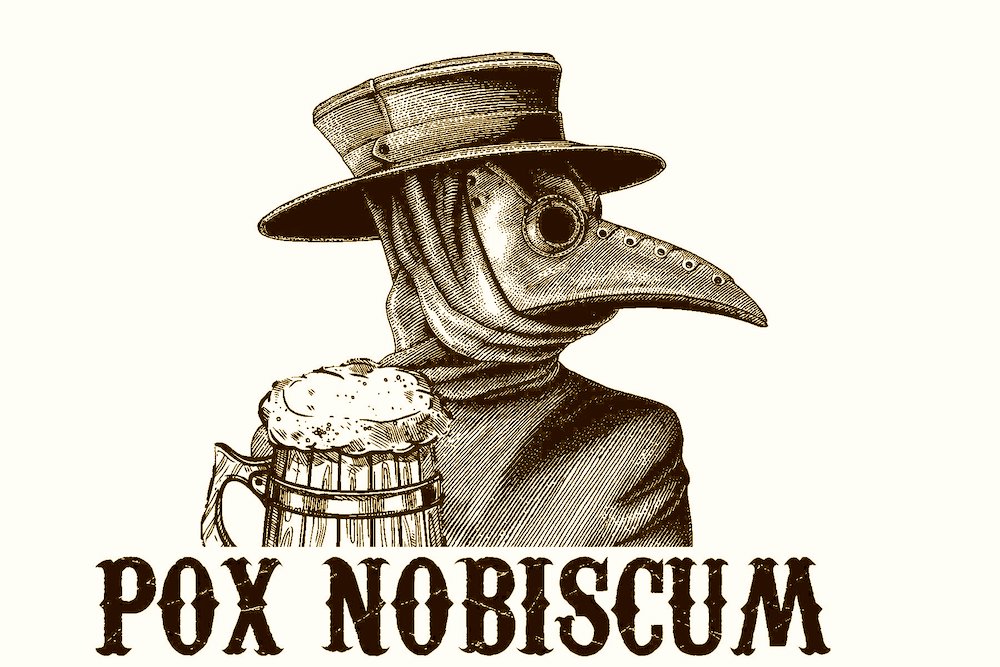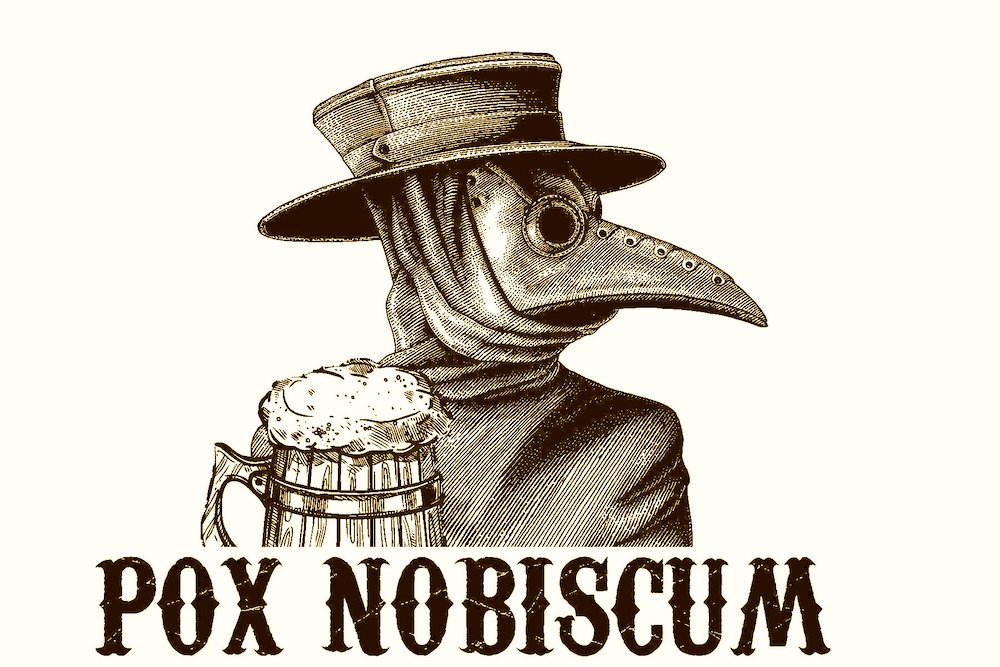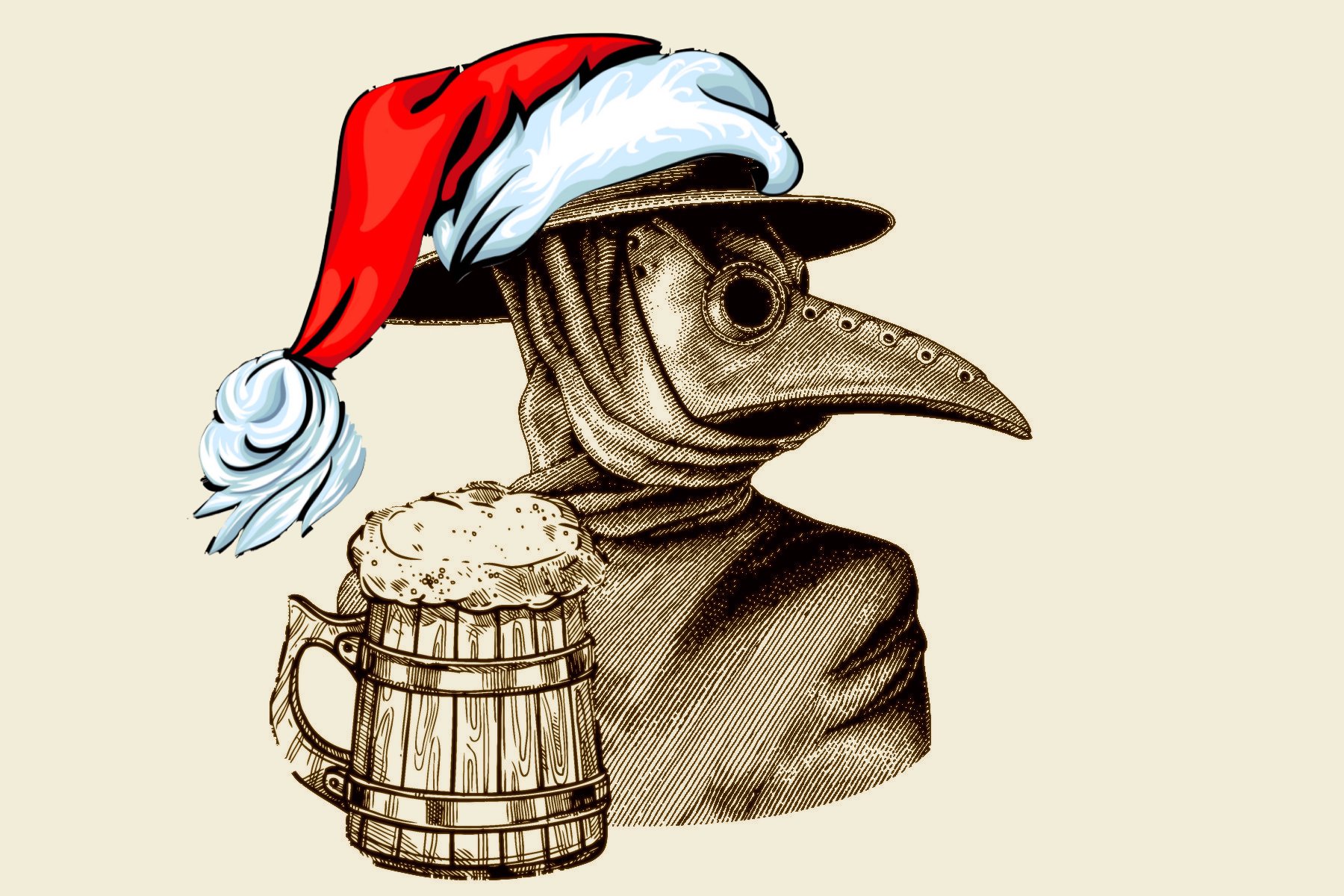How many pubs does a country need? Some would say we need none at all, but they’re not the sort to subscribe to a vital service like Good Food Revolution.
This deeply philosophical question came to me recently when I read that England, for the first time in recorded history, has fewer than 100,000 pubs – 99,916, to be precise. It’s worth noting that recorded history, in this case, goes all the way back to 2003. Did no one bother to count pubs before 2003? Were there too many to count? Did they lose track because there were so many Red Lions and White Harts? “Blimey, Sid, that’s the third Red Lion this morning? Are we sure they’re all different?”
It isn’t a new phenomenon, this disappearance of English pubs. It’s been going on for some time, and for a number of reasons. (Coronation Street viewers will be familiar with the sad sight of the Rovers Return pub boarded up.) People traditionally went to pubs, in part, because it got them out of their cold, squalid hovels. Now they live in centrally heated homes with 200 TV channels and cheap supermarket lager in the fridge. And they can smoke. But still, what’s the point of living in England and not going to pubs? It’s like living in Vienna and never eating strudel, or living in the USA and not owning a gun. It’s all a bit pointless, like living in Canada and not owning a snow shovel.
My wife and I travel to England as often as we can, and I never feel the trip has begun until we’re sat in a pub with a pint of something glorious in front of us. The trip to the airport is always fraught; negotiating everything in the airport before you can board is never fun; and the flight itself, well, you know. Then you have to walk several miles at the other end before being looked at suspiciously by the authorities. You wonder why you put yourself through all this misery, then, all of that behind you, you walk into a pub, study the pump handles before you, and soon you have a pint of fresh cask-conditioned ale in your hand.
The late travel writer, Pete McCarthy, had a number of rules governing travel. His first rule was that upon arrival you should buy a local paper and have a beer. It turns out I’ve been obeying McCarthy’s rule most of my life. And so indeed, this past October, we found ourselves clutching freshly purchased newspapers and supping fine ales in the Bear in Paddington (27 Spring Street). You could do a lot worse than the Bear, a friendly spot with good beer choices and, when we were there, a barmaid from Toronto. It’s funny—I meet barmaids from Toronto all the time, but it’s usually in Toronto, so I don’t ask them what part of town they’re from or what high school they attended.
Thanks to an uninvited and pestilent guest who landed on these shores in early 2020 and still hasn’t gone away (did absolutely everyone get Covid over the recent festive season or just everyone I know?), we had not boarded an airplane for three-and-a-half years and hadn’t been to Britain for another year before then, so I was curious as to the state of the English pub. And, because I knew you were counting on me, I went to rather a lot of them – 54, to be precise—in about three weeks. No, don’t thank me. I’m sure you’d do the same. (I should point out that since we hadn’t travelled in some time, we stuck to the south of England, venturing no farther north than Gloucester, which is not very north at all. This was just as well as there were storms in the north and Scotland that were literally killing people. I like a bit of adventure, but I’m not silly about it.)
I went to all sorts of pubs: city pubs, rustic pubs, plain pubs, ornate pubs, family pubs, and corporate pubs. I went to the Seven Stars in London and the Seven Stars in Bristol, not to mention the Star Tavern in London and the Evening Star in Brighton. I visited four Heads – King’s (Bristol), Queen’s (Brighton), Nag’s (London), and Saracen’s (Bath) – and the same number of Arms – Basketmaker’s, Gardener’s, Landsdown, and Lewes, all in or near Brighton. And I’d be remiss in not noting the Old Badger (Eastington), Old Spot (Dursley), Old Green Tree (Bath), and Old Fish Market (Bristol). Or, for that matter, the Prince Albert and the Princess Louise, both in London, named for the husband and daughter of Queen Victoria.
I went to three pubs that have won the coveted Campaign for Real Ale National Pub of the Year Award, just to confirm that they are maintaining their high standards. They are indeed, though the Salutation (the Sally to their devotees and the 2014 champion), a rustic Gloucestershire pub near Berkeley Castle, is currently not open at lunchtime during the week. The Harp (2010) and the Old Spot (2007) continue to please their many admirers, among whose numbers I include myself.
There is no handy formula for an English pub. Like a good bookshop, a good pub reflects the taste and the personality of the people who run it. The aforementioned Harp, a handsome pub on the southwest fringes of Covent Garden, tucked behind the London Coliseum, was at one point owned by one of the pubcos, companies that own lots of real estate that happens to be occupied by pubs. For some years, it was run by a woman named Bridget Walsh, Binnie to her friends, a woman who knew how to run a pub. During some recession or other, the pubco sold the Harp to Ms. Walsh, and the pub got even better. Since then, she has retired and the pub is now owned by Fuller’s, a large London brewery that seems to have had the good sense to keep the Harp as it was, offering a good range of beers beyond their own brews and retaining its status as an essential London boozer.
The also aforementioned Old Spot was once a drab pub in an unremarkable Gloucestershire market town called Dursley, a town not renowned for world-class pubbery. Enter a man named Rik Sainty. When we first met Rik, in the early 1980s, he and his then-wife were running a pub called the New Inn in a hamlet called Waterley Bottom, an adventurous drive up a very steep hill from Dursley then another precipitous drive down another very steep hill on the other side. You were ready for a drink once you got there. Rik took care of the beer, and Ruby, as far as we could tell, took care of everything else. It was a real ale paradise in the middle of nowhere. I may have overstated the size of Waterley Bottom when I called it a hamlet. It’s not that big.
Paradises are sometimes lost, as you may have observed. The rumour mill reached all the way to Canada, a report that Rik had run off with a barmaid and fled to Bristol. The New Inn continued to be a good pub, but it wasn’t quite the great pub it had been. Time passed, as is its wont, and Rik returned to the Greater Dursley Area with a new wife, though I’ve never been sure if she was the barmaid who had been implicated in the earlier drama. I mean, you don’t like to ask. Rik was now older, and possibly wiser, and he had enough money to buy the drab old pub in Dursley, rename it after a local breed of pig, and turn it into the pub he wanted to retire to. It would look nice (though not fake Ye Olde English), offer excellent beer, be free of canned music, fruit machines, and TV screens, serve food at lunchtime, be welcoming to dogs, hire intelligent and genial staff, have a fireplace, and generally be exactly the sort of pub Rik liked.
It wasn’t just Rik who liked the Old Spot. Pretty much everybody liked the Old Spot. On any given evening, you’d encounter most of the known generations, or at least generations of legal drinking age, which is always a sign of a good pub. Rik was very picky about his beer, and there are stories of him physically removing a Budweiser salesman from the premises. Wish I’d been there for that.
A short train ride from Brighton, you’ll find the more than pleasant Sussex town of Lewes, home to a ruined Norman castle, a handsome Victorian brewery, and some very good pubs, perhaps the best of which is the Lewes Arms, where we once spent a winter evening. Lewes is a hilly town, and this particular evening was icy underfoot. One of the locals had been enjoying his evening. We could tell because he spent a good half-hour making his way through the three small rooms that comprise the Lewes Arms, bidding everyone a good night. I think he even wished us a good night. Finally, he left. A moment later, the pub’s landlady, a genial woman named Claire, emerged from behind the bar, putting on her coat. She was off to make sure her customer got home safely. When she returned, she reported that he had made it almost home when he turned around and saw her, whereupon he tried to insist on walking her back to the pub. This could have gone on all night had she not put her foot down.
By my calculations, England has a pub for every 559 residents. If everybody decided to go down to the pub on the same evening, it would be chaos. There are some big pubs in England, but not that big. And, to be sure, a fair number of those residents are too young to drink (for now), and not all the grownups are inclined to drink, but it still seems like too few pubs, especially since many of the places that call themselves pubs are in reality now restaurants. I suspect the once-lovely Sun in Splendour in Notting Hill Gate continues to call itself a pub, but it’s not. If you can’t go to the bar to fetch another pint, you’re in a restaurant. Put it this way: we had a Sunday lunch there for old times’ sake, but I didn’t count it for my pub list. (For what it’s worth, English pub food, even in pubs that remain pubs, has become more sophisticated, not to mention expensive; the modest cheese and tomato sandwich that sustained us on many holidays seems to have disappeared completely.)
I did notice that pubs seemed less busy than I’m accustomed to, which I assume is the ongoing Covid factor. Get people out of the habit of going to the pub and they might not come back. It’s happening everywhere. I saw London pubs shutting early and Bristol pubs not opening till late. There were, of course, exceptions. The southwest of England is rugby-mad. They might watch a football match, but only if there’s no rugby on. We were in Bristol when England was playing South Africa in the Rugby World Cup semifinal, so we went to a lovely pub called Cornubia and got the last two seats. England took an early lead and held it until, well, until they didn’t. One of the locals led us all in a chorus of Jerusalem, but even that wasn’t enough. It should have been, but it wasn’t. Still, it was a good night in a good pub.
That’s part of why we go to pubs. I’ve spent many happy hours sitting alone in a pub with a book, speaking to no one but my bartender. Apparently I’m an introvert, and I make no apologies for it. But there are other occasions with friends, engaged in witty banter. And there are rare times when you stumble upon something totally unexpected. I’ve been going to pubs (and somewhat vaguely publike spots) for more than 58 years, and I’ve been encouraged to sing Jerusalem exactly once. So far. If I have to wait another 58 years I’ll be very old indeed.
Yes, but what was I drinking in all these recent pubs? Fine English ale, served as it should be from a handpump, having undertaken a second fermentation in the cask. At its best, it’s the freshest beer you’ll ever drink. (At its worst, you shouldn’t drink it, but that goes for any beer.) It’s less gassy than we’re used to in North America, but what was a bit surprising to me after so long away and living among our modern hoppy beers is that your traditional English ale is more malt-forward than we’re accustomed to these days. A pint of bitter is sweeter than we expect, but if you put your mind to it you can adjust pretty quickly. If I can do it, you can.
It’s not an easy time to be in the pub game in Britain today. Simply heating a pub costs an arm, a leg, and one or two vital organs, before you even open the door. And one of the million or so alleged benefits of Brexit has been preventing those rotten Europeans from coming in and working in pubs, making it more difficult and expensive to find staff. The consequences of all this have driven the price of a pint to heights previously unimagined, yet another reason for people to stay home.
Should the transatlantic traveller balk at these prices? Not at all. First of all, the tipping culture in Britain is not like ours. Bar staff are paid something approaching a living wage and are not dependent on tips. Nor do they expect tips; I once saw a London barman chase after an American tourist because the man had left change on the bar, the barman assumed inadvertently. Traditionally, in a British pub, if you choose to tip the person who’s been pouring your drinks you quietly say as you’re paying for your round, “And will you have one yourself?” He or she will thank you and charge you for a drink – usually a half-pint – and will either have the drink or keep the money.
On top of that, the tax is included in the price of your pint, so if it costs £6 (cheaper outside London), that’s what you pay. Here in Toronto, where a pint increasingly costs 10 Canadian dollars (roughly £6), you’ll be paying tax and tip on top of that. So go to England; the more you drink, the more you’ll save. Mind you, you’ll pay more for lager or non-cask-conditioned “craft” beers, so stick with the traditional stuff. They’ve been making it for a very long time, and they’re pretty good at it.





